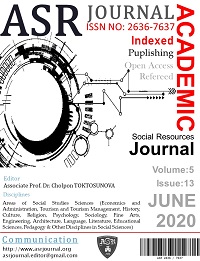Author :
Abstract
Toplumun temelini oluşturma ve neslin devamını sağlama noktasında en mühim rolü üstlenen sosyal yapı elbette ailedir. Bu sebeple geçmişten günümüze gerek din temelli gerekse insan temelli hukuk sistemleri aile kurumunu korumak ve toplumu sağlam temeller üzerine oturtmak adına birtakım kaideler belirlemişlerdir. İslâm hukukunda nikah akdi ile başlayan evlilik hayatının asıl amacı, karı-kocanın birlik ve beraberlik içerisinde hayatlarını sürdürmeleri ve evliliklerinin meyvesi olan çocuklarını ortak sorumluluk bilinciyle yetiştirmeleridir. Nitekim çocuğun sosyal ve psikolojik açıdan sağlıklı bir birey olarak toplum içerisinde var olması; anne-babasıyla birlikte, mutlu ve huzurlu bir aile ortamında yetişmiş olmasıyla yakından alakalıdır. Ne yazık ki günümüzde boşanmaların artması ve ailelerin dağılması çoğu zaman buna imkân tanımamakta, taraflardan birinin yanında kalmak mecburiyetinde bırakılan çocuğun mağduriyeti söz konusu olmaktadır. İşte hidâne müessesesi, daha çok böyle durumlarda çocuğun mağduriyetini gidermek, olayların onun üzerinde oluşturacağı olumsuz etkiyi en aza indirgemek ve onun mutlak menfaatini gözetmek adına gündeme gelmekle birlikte, anne-babanın çocukları için yerine getirmeleri gereken sorumlulukları da belirlemektedir. Biz bu çalışmamızda İslâm Aile Hukuku başlığı altında yer alan hidâne müessesesinin tanımı, mahiyeti ve kapsamı üzerinde durmaya çalışacağız.
Keywords
Abstract
The social structure that plays the most significant role at the point of forming the basis of society and providing the continuation of generation is for sure the family. For this reason, from past to present, either religion-based or human-based law systems established several rules for the sake of protecting family institution and building the society on strong bases. In Islamıc laws, in wedlocks started with marriage contract, the principal is the husband and wife maintaining their lives in unity and cooperation and bringing up their children that are the fruits of their marriage with the conciousness and responsibility. Because the child’s existance in society as a socially and psychologically healthy individual is closely related to his/her being brought up in a happy and peaceful family atmosphere with his/her mother and father. Unfortunately at the present time, the increase of divorces and falling apart of families mostly do not enable this and the aggrievement of the child forced to live with one of the parties comes into question. So bringing-children-up institution both comes to the fore to remedy the aggrievement of the child on these cases, to minimize the negative effects of events that would generate on him/her and to guard his/her absolute benefit and states the responsibility of parents have to do for their children. In this study of us, we are going to try to surmount the definion, the significance and the content of bringing-children-up institution that takes place under the title of Islamic family law.





